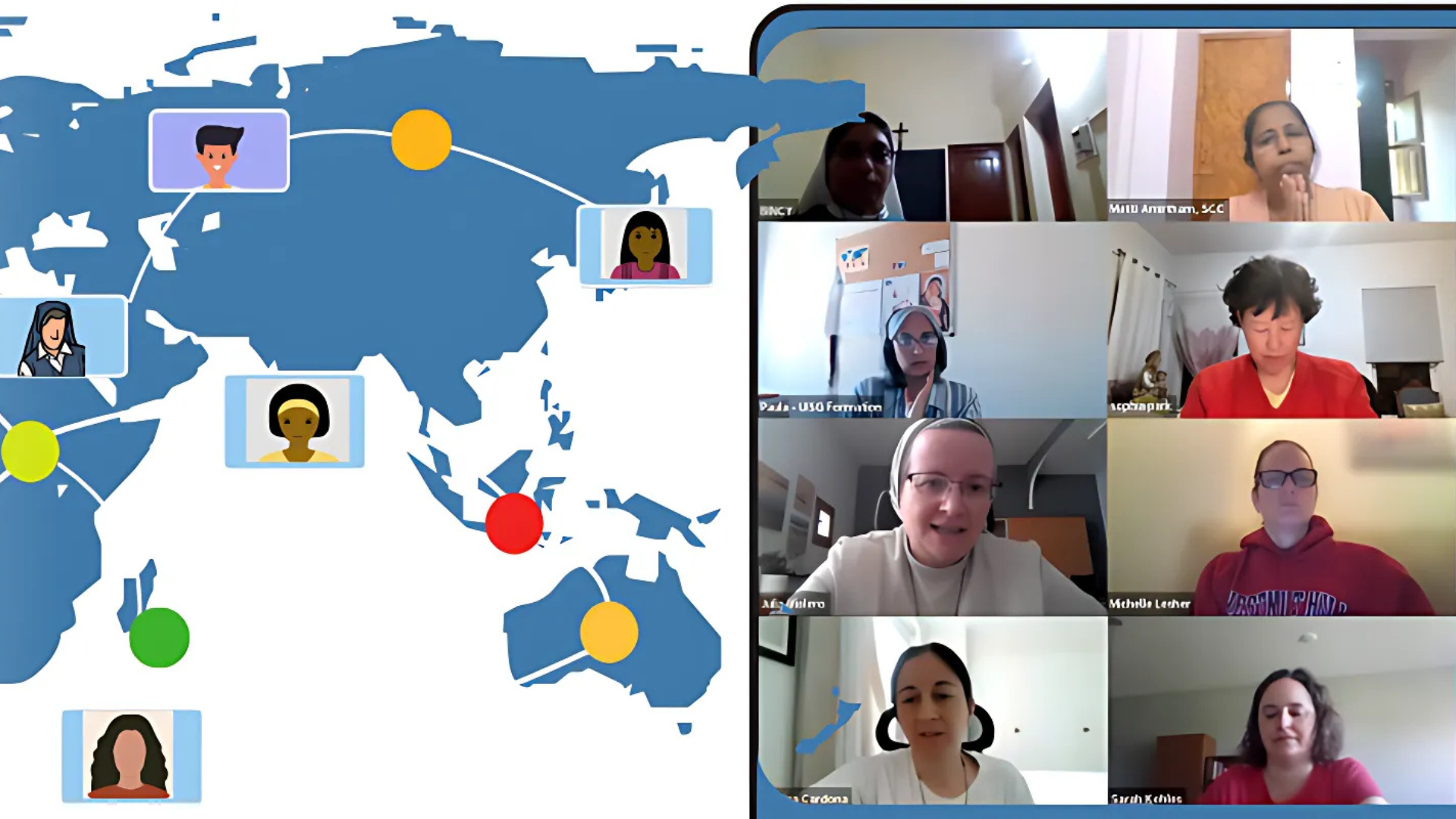
14/07/2024
News
Future of consecrated life lies in inter- congregational interaction
Future of consecrated life lies in inter-congregational interaction
From May 26 to June 2, 2024, UISG held the Second Symposium of Women Religious Theologians in Nemi (Rome, Italy).
Designed as a platform for women religious theologians, the symposium aimed to nurture theological reflection on religious life by making it contextual and practical.
We asked some participants to share a personal reflection on the symposium through both video and written interviews. Below, we present the one by Sister Marie Desanges Kahindo Kavene, Servant of Mary.
My name is Marie Desanges Kahindo Kavene, Servant of Mary of Congolese origin. I studied at the Facultés Loyola Paris in France, where I've been living since 2012. I am currently involved in pastoral care in schools, while maintaining links with the Loyola Paris Faculty as an associate researcher in the practical and pastoral theology department. As a religious theologian, the aspect that fascinates me is going out to meet people, especially the most disadvantaged, because they have another approach to life, they reveal to me another face of God and other ways of being in relationship with him, with oneself, with others and with nature.
I had the great joy of taking part in a face-to-face meeting at the symposium of religious theologians in Nemi, after 4 remote meetings. This double experience was very enriching for me. During the symposium, I was very impressed by the different themes addressed by the sisters from very diverse backgrounds. The image that came to mind during the sessions presenting our work was that of a huge multi-colored jigsaw puzzle. Indeed, each reflection was important and had its place; each of them was the bearer of an aspect of religious life in all its beauty and fragility, at the heart of a Church and a world in suffering and in active, joyful hope.
Given the changes taking place in religious life and in society today, what are we called to do?
The main challenges I've had to face are linked to listening as the yeast of transformation in our own ways of living religious life, of making Church together and of living our missions in the reality of our world. These are the questions that have been on my mind since the Symposium: given the changes taking place in religious life and in society today, what are we called to do? Who and how do we listen to in order to dare to reinvent ourselves, to dare to be creative while remaining faithful to our charisms? What new things are we called to do, so that the way we live religious life today is embodied in the reality of our congregations and our contemporaries? How can we rethink the theology of the evangelical counsels so that they are lived out in a dynamic of life in a world where relationships are often viewed from the perspective of having, individualistic autonomy and domineering power? At a time when the rise of violence is increasingly becoming a global phenomenon that also affects our congregations (countries in conflict), how can we make our communities true places of fraternity beyond ideologies or situations that fuel violence by pitting people against each other? How can we rethink initial and ongoing training in such a context?
These questions call for interaction between congregations: Today, "the future of consecrated life lies in inter- congregational interaction" (Sister Antonita). My dream is that this interaction should already be effective, starting with the nucleus formed in Nemi, so that women theologians can be trained to serve religious life through meetings, shared reflections and the publication of collectives on one or more themes: Exchanging, Listening, Writing and Enlarging are, it seems to me, ways of contributing to the process of synodality in today's Church.
Related News
 News
Wednesday 26 November 2025
UISG's Group of Women Religious Theologians to Meet for the First Time
Read
News
Wednesday 26 November 2025
UISG's Group of Women Religious Theologians to Meet for the First Time
Read
 News
Friday 18 July 2025
Online Forum of Women Theologians: Walking Together in Hope
Read
News
Friday 18 July 2025
Online Forum of Women Theologians: Walking Together in Hope
Read
 News
Saturday 07 June 2025
New Applications: Registration Open for the Third Group of Consecrated Women Theologians
Read
News
Saturday 07 June 2025
New Applications: Registration Open for the Third Group of Consecrated Women Theologians
Read
 News
Monday 12 May 2025
Diploma in Theological Studies – Angelicum
Read
News
Monday 12 May 2025
Diploma in Theological Studies – Angelicum
Read